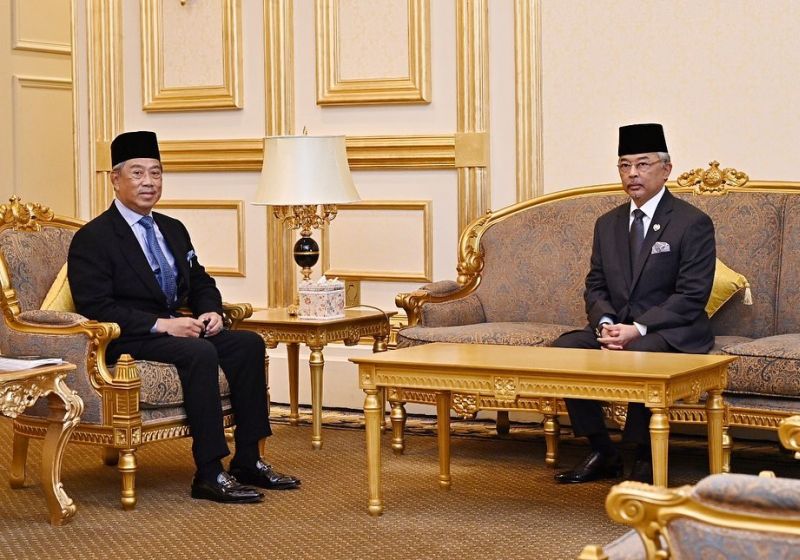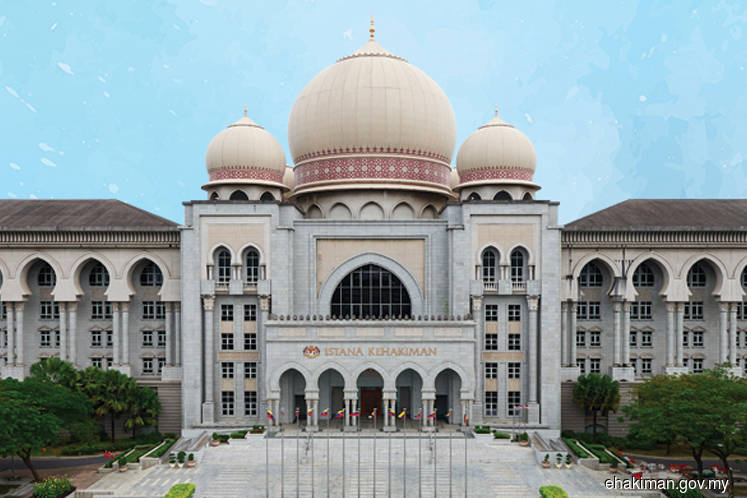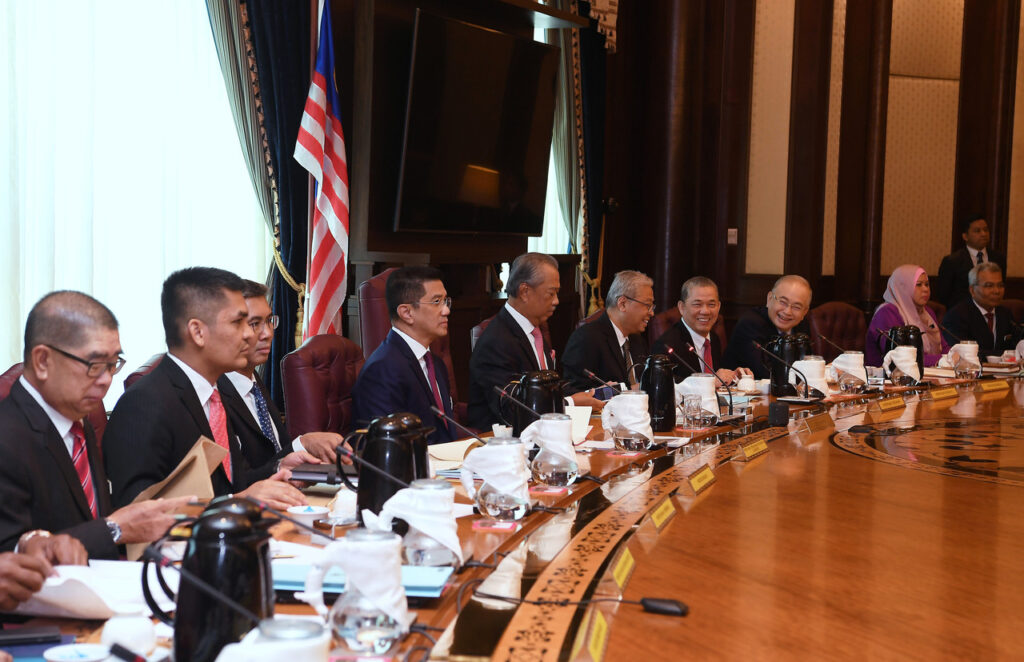Reports of the government’s intention to declare a state of emergency – ostensibly due to the Covid-19 pandemic – have put citizens in a mixed state of anger, panic, and confusion. While this blog post can do little to alleviate the former two emotions, it will at least endeavour to give at least some clarity on whether legal recourse can be taken against a Proclamation of Emergency and, if so, how.

What are the emergency provisions of the Federal Constitution?
The Federal Constitution’s emergency provisions are contained in article 150. The discretion accorded to the Yang di-Pertuan Agong is broad and allows him to issue a Proclamation of Emergency if he “is satisfied that a grave emergency exists whereby the security, or the economic life, or public order in the Federation or any part thereof is threatened”.
A Proclamation itself does not create laws. Its effect is instead to confer plenary legislative power, normally vested in Parliament and the State Legislative Assemblies, to the Yang di-Pertuan Agong.
The only conditions to that power are imposed by article 150(2B), which require that the His Majesty be “satisfied that certain circumstances exist which render it necessary for him to take immediate action” and that the Houses of Parliament are not sitting.
Article 150(2C) provides that emergency ordinances have full force of law and are of equivalent effect to Acts of Parliament. However, in contrast to ordinary legislation, article 150(6) provides that ordinances cannot be invalid on the basis of unconstitutionality.
In short, an emergency confers the executive branch with effectively unlimited legislative power. That such power is nominally exercised by the Agong is immaterial as – per article 40 – His Majesty must still act on the advice of the Cabinet.
In light of these extensive powers, it is reasonable to ask: can a Proclamation of Emergency be challenged in the courts?

Are the courts prohibited from reviewing a Proclamation of Emergency?
The first hurdle to overcome in an application for judicial review to invalidate a Proclamation is found in article 150(8) which states:
(8) Notwithstanding anything in this Constitution—
(a) the satisfaction of the Yang di-Pertuan Agong mentioned in Clause (1) and Clause (2B) shall be final and conclusive and shall not be challenged or called in question in any court on any ground; and
(b) no court shall have jurisdiction to entertain or determine any application, question or proceeding, in whatever form, on any ground, regarding the validity of—
(i) a Proclamation under Clause (1) or of a declaration made in such Proclamation to the effect stated in Clause (1);
(ii) the continued operation of such Proclamation;
(iii) any ordinance promulgated under Clause (2B); or
(iv) the continuation in force of any such ordinance.
On its face, article 150(8) appears to be a comprehensive ouster clause. However, there are strong legal reasons as to why it should be rendered ineffective.
Crucially, it was not in the text of the original Merdeka Constitution. Rather, it was amended in by the Constitution (Amendment) Act 1981 (i.e. Act A514).
As a result of the Federal Court’s decision in Indira Gandhi v Pengarah Jabatan Agama Islam Perak [2018] 1 MLJ 545, the legal efficacy of any law – even if legislated as a constitutional amendment – cannot exclude the civil courts’ supervisory jurisdiction. At paragraph 92, Zainun Ali FCJ held:
Thus the amendment inserting cl (1A) in art 121 does not oust the jurisdiction of the civil courts nor does it confer judicial power on the Syariah Courts. More importantly, Parliament does not have the power to make any constitutional amendment to give such an effect; it would be invalid, if not downright repugnant, to the notion of judicial power inherent in the basic structure of the constitution.
Although the impugned clause in Indira Ghandi was an implicit ouster of the civil courts’ jurisdiction, the Federal Court’s reasoning cannot be confined to the facts of the case. It was central to the decision that the civil courts’ supervisory jurisdiction over subordinate courts, the executive, and legislatures be defined expansively.
At paragraph 33, Zainun Ali FCJ reasoned that:
Inherent in these foundational principles [in Westminster constitutions] is the role of the Judiciary as the ultimate arbiter of the lawfulness of state action. The power of the courts is a natural and necessary corollary of the rule of law. In many jurisdictions this was made clear. In Malaysia, in the seminal decision of the Federal Court in Pengarah Tanah dan Galian, Wilayah Persekutuan v Sri Lempah Enterprise Sdn Bhd [1979] 1 MLJ 135, Raja Azlan Shah Ag CJ (as his Royal Highness then was) expressed in a passage which has remained inviolable, that:
… Unfettered discretion is a contradiction in terms. Every legal power must have legal limits, otherwise there is dictatorship. In particular, it is a stringent requirement that a discretion should be exercised for a proper purpose, and that it should not be exercised unreasonably. In other words, every discretion cannot be free from legal restraint, where it is wrongly exercised, it becomes the duty of the court to intervene. The courts are the only defence of the liberty of the subject against departmental aggression.
As a consequence, article 150(8) is of questionable legality, and a court would not be treading on prohibited ground were it to find it either a nullity or – at the very least – ineffective to preclude judicial review.
Is a Proclamation of Emergency justiciable?
The second hurdle faced would be to determine that the power to issue a proclamation is subject to the ordinary grounds of judicial review. This was at issue in Stephen Kalong Ningkan v Malaysia [1968] 1 MLJ 119, where the applicant challenged a proclamation that there was a state of emergency in Sarawak, and argued that the Proclamation was fraudulently procured for political advantage.
Both the Federal Court and, on appeal, the Privy Council dismissed the application. However, the two courts differed in how they disposed of the case. A majority of the Federal Court, composed of Barakbah LP and Azmi CJM, held that the legality of a Proclamation was wholly beyond the courts’ province. At page 122, Barakbah LP stated:
In my view the question is whether a court of law could make it an issue for the purpose of a trial by calling in evidence to show whether or not His Majesty the Yang di-Pertuan Agong was acting in bad faith in having proclaimed the emergency. In an act of the nature of a Proclamation of Emergency, issued in accordance with the Constitution, in my opinion, it is incumbent on the court to assume that the Government is acting in the best interest of the State and to permit no evidence to be adduced otherwise. In short, the circumstances which bring about a Proclamation of Emergency are non justiciable.
However, the Privy Council took a different approach, and held that the applicant had merely not met the requirements for demonstrating that the Proclamation was in fraudem legis. As he did not, the application necessarily failed and the issue of whether the issuance of a Proclamation is justiciable did not require an answer.
In part, the Board’s evasion of the issue was ascribable to the fact that, at the Federal Court, Ong Hock Thye FCJ dissented on justiciability. In contrast to the majority, Ong Hock Thye FCJ reasoned that the issuance of a Proclamation was, like any executive action, amenable to judicial review. Although the threshold for a successful challenge was high, he noted at page 128 that:
The crucial question here is whether the proclamation was made (a) not to deal with a grave emergency whereby the security or economic life of Sarawak was threatened but (b) for the purpose of removing the petitioner from the office of Chief Minister of Sarawak.
In other words, that the court was empowered – and required – to determine whether the proclamation was issued for an improper purpose.
However, in light of the aspects of Indira Ghandi discussed above, the current understanding of the Malaysian constitutional settlement would render the majority’s reasoning untenable. Instead, it it appears that Ong Hock Thye FCJ’s analysis is preferable, and correctly reflects the constitutional balance of powers between the executive and the courts.
On what grounds would a Proclamation be reviewable?
The Federal Court majority in Stephen Kalong Ningkan was correct to remark that “it is incumbent on the court to assume that the Government is acting in the best interest of the State”. However, its subsequent proscription that a court should not “permit no evidence to be adduced otherwise” is contrary to the now-established constitutional principle that “every legal power must have legal limits”. Naturally, legal limits are those which are enforceable by courts.
Ong Hock Thye FCJ’s minority view was also prescient of contemporary developments on the reviewability of high prerogatives which are, nominally, exercised directly by the sovereign acting on the advice of Cabinet.
As noted in earlier posts on this blog, the United Kingdom Supreme Court case R (Miller) v Prime Minister [2019] UKSC 41 is instructive as to the modern common law approach to be taken by a court faced with an application to judicially review historically non-justiciable prerogatives.
In essence, the Supreme Court’s decision that Prime Minister Boris Johnson’s advice to HM The Queen to prorogue Parliament was unlawful rested on two propositions:
- All prerogative powers are subject to legal limits; and
- If it exercising the prerogative power to prorogue Parliament has the effect of preventing parliamentary accountability, it must have ben exercised with “reasonable justification”.
Importantly, the applicants prevailed not on the positive case that the power to prorogue was exercised for an improper purpose, but because the government failed to meet the second limb of the second proposition, i.e. that it did not provide a reasonable justification for the interference with parliamentary accountability.
The Court’s approach was sensible and took proper account of the inherently political nature of the power to prorogue. Its framing of the question as one of scope, not exercise, allowed it to apply hard constitutional limits on the executive’s power without determining the political merits of the prorogation.
Hence, for the court find illegality, it sufficed that the government crossed a constitutional red line.

Would the declaration of a ‘political’ emergency be unconstitutional?
Despite a scarcity of details, reports have suggested that the government is seeking the Agong’s consent to a ‘political’ emergency, under which life under the Movement Control Order continues except for ‘political activities’.
What this means is anyone’s guess.
Notably, a budget has yet to be tabled or passed by Parliament; for reference, the 2020 budget was tabled on 11 October 2019 and passed on 28 November 2020. Combined with recent claims that opposition Member of Parliament Anwar Ibrahim has a majority in the Dewan Rakyat, it may be the case that a ‘political’ emergency is but a thinly-veiled attempt to fund the government without the risk of facing a parliamentary defeat.
However, in doing so, PM Muhyiddin’s ‘emergency’ may fall foul of constitutional limits in much the same way that PM Johnson’s prorogation did.
As wide a berth the law gives to the exercise of highly political prerogatives, no allowance can be given to an unjustified – or unjustifiable – attempt to subvert the essential requirements of parliamentary democracy.
Although analogies between English and Malaysian public law must be made with caution, there is little hazard in asserting that considerations of parliamentary accountability and representative government have as much force in Putrajaya as they do in London.
Where in England the executive’s responsibility to Parliament is anchored in principle of parliamentary sovereignty, in Malaysia it is tethered to parliament’s role in the basic structure of the constitution. Although orthodox Westminster principles are undoubtedly attenuated by the introduction of a supreme written constitution, the core assumptions of a Westminster political system remain.
If anything, their codification makes the duties of responsible government especially significant.
The existence of a government is constituted by the possession of a majority in the Dewan Rakyat, as article 43(2)(a) makes clear:
… the Yang di-Pertuan Agong shall first appoint as Perdana Menteri (Prime Minister) to preside over the Cabinet a member of the House of Representatives who in his judgment is likely to command the confidence of the majority of the members of that House.
Per article 43(4) A Prime Minister who loses his majority can no longer be Prime Minister:
If the Prime Minister ceases to command the confidence of the majority of the members of the House of Representatives, then, unless at his request the Yang di-Pertuan Agong dissolves Parliament, the Prime Minister shall tender the resignation of the Cabinet
Curiously, the framers also included article 43(3), which emphasises the executive’s accountability to the legislature. It states, with uncharacteristic brevity, that: The Cabinet shall be collectively responsible to Parliament.
Such principles are also effective to resist any attempt to justify the emergency with reference to the ongoing Covid-19 pandemic. The Federal Constitution does not require that MPs convene physically for there to be a hearing. Grassroots youth groups have demonstrated that online sittings are not merely possible, but precedented. Overseas, legislatures have made provision for hybrid, part-digital proceedings and practice. The implementation of digital or hybrid parliamentary sittings only requires amending the Dewan Rakyat Standing Orders and some degree of technical capacity.
Hence, government arguments to the effect that parliamentary sittings are impossible during a pandemic should be viewed with circumspection, and any prospective applicant would be wise to evidence the feasibility of alternative arrangements.
It cannot be denied that a challenge to the legality of a Proclamation of Emergency faces numerous difficulties. At the same time, there are strong grounds to argue that foundational constitutional principles militate against an emergency which is, in effect, merely an attempt to evade parliamentary scrutiny.
A state of emergency is a state of exception; it cannot be used to re-define fundamental norms.
_____________
Many thanks to Tashny Sukumaran, Hannah Haslimi and Tan Kian Leong for their assistance at such short notice. All errors and oversights remain the author’s.
